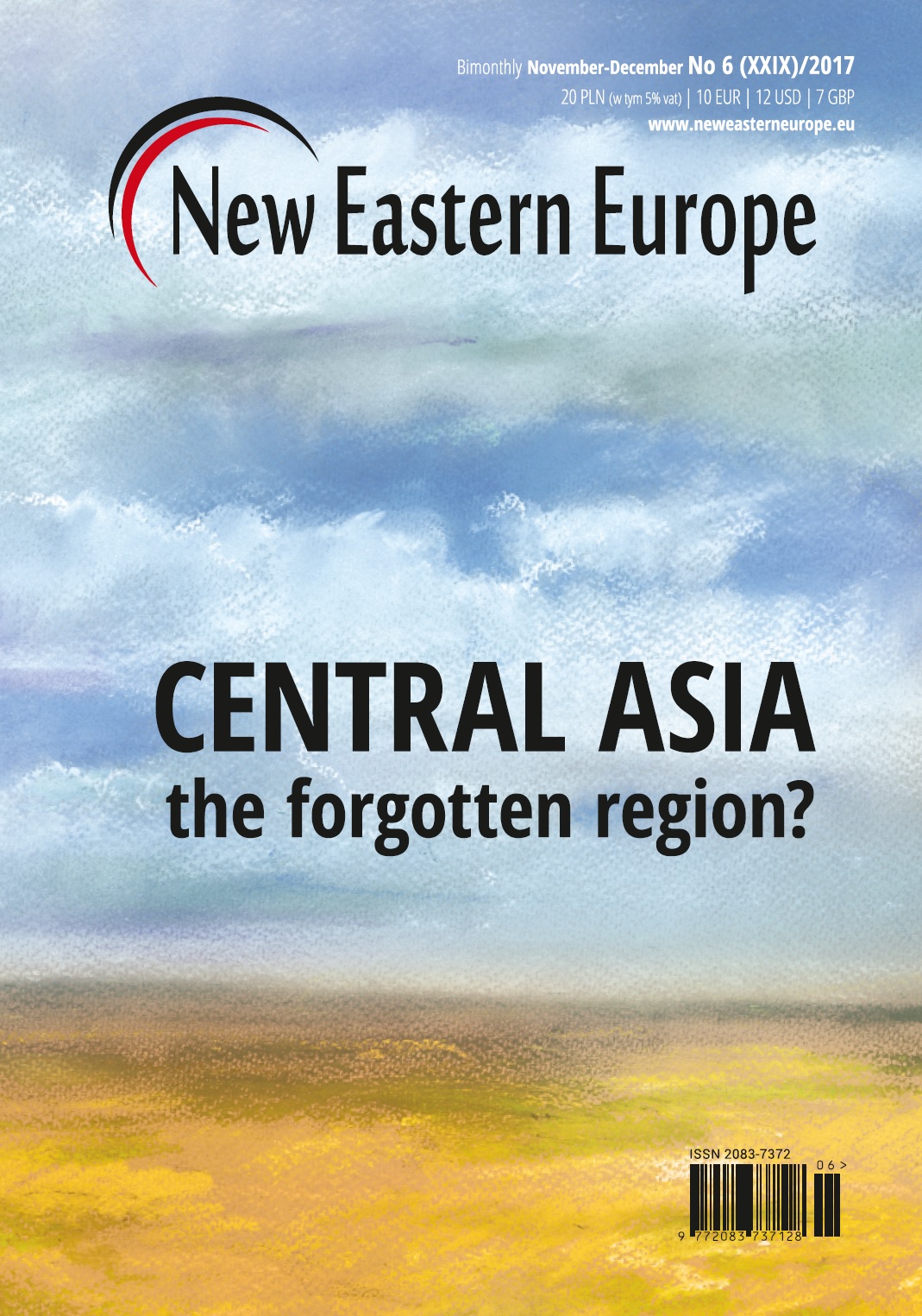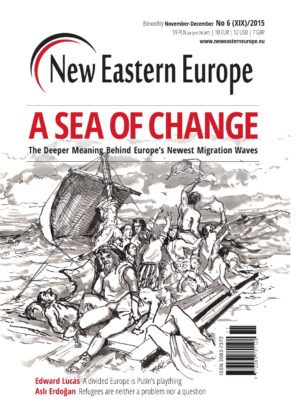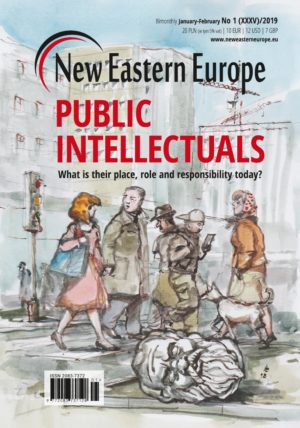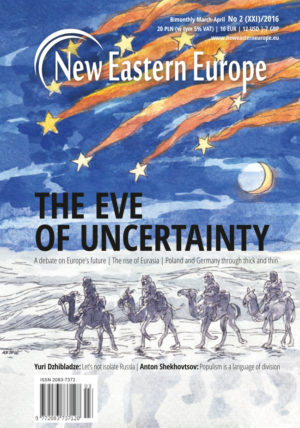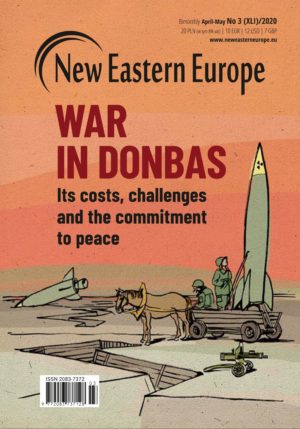Issue 6 2017: Central Asia. The forgotten region?
Central Asia is an ethnically, geographically and culturally diverse region, covering a similar land mass as the European Union. Yet, it remains one of the least familiar to the general public in the West. An important region in its own right, located in a volatile geopolitical area between Russia, China, Afghanistan and Iran, the five states of Kazakhstan, Kyrgyzstan, Tajikistan, Turkmenistan and Uzbekistan rarely make headlines in the mainstream media. Owing to this neglect the region has fallen victim to orientalist clichés, presenting it as a spacious blank steppe dividing the big players or as a collection of post-Soviet artificial entities devoid of agency in international relations.
In this issue we seek to confront that trend by showing Central Asian as players in the international arena with complex societies facing different internal and external dilemmas. While it is true that authoritarian tendencies, poor economic performance and Islam have been common features uniting the five states, the reality on the ground is much more complex. The issue takes on the well-worn new Great Game narrative to show that the exhausted metaphor has been little more than a misused stereotype. We also look at the unique nation building experiences of Central Asian countries following the collapse of the Soviet Union and how the respective societies have built their understanding of democracy.
Table of Contents:
OPINION & ANALYSIS
The new Great Game that is not – Filippo Costa Buranelli
The self-made Apaches of Kyrgyzstan – A photo-report by Magdalena Borowiec
How Central Asia understands democracy – Mariya Y. Omelicheva
Central Asia and water. No time left for squabbles – Peter Leonard
The complex reality of radicalisation in Central Asia – An interview with Bhavna Davé
The crawling threat of the Crimea scenario – Naubet Bisenov
A looming humanitarian crisis in the land Orwell forgot – Christopher Schwartz
In search of the enemies of the state – Anna Cieślewska
Putin and his monsters – Artem Filatov
The Kremlin sets its eyes on YouTube – Svitlana Ovcharova
Central Europe is more vulnerable than it appears – Péter Krekó, Edit Zgut and Lóránt Győri
The rebranding of Jobbik – Dominik Héjj
Is it too early to speak about justice in Donbas? – Gerhard Kemp and Igor Lyubashenko
Visas for Georgians are not enough – Mateusz Kubiak
The curse and miracle of Kupiškis – Emil Staulund Larsen and Noah Groves
INTERVIEWS
Russia is unprepared for the next world order – An interview with Bobo Lo
HISTORY AND MEMORY
How Russia interprets 1917 – Nikita Petrov
REPORTS
Stories from Russia’s coal country – Giovanni Pigni
The curse of Ján Ľupták’s duck – Dariusz Kałan
EASTERN CAFÉ
The disintegration train has left Brussels – Iwona Reichardt
Putin’s long awaited opportunity, retaliation and revenge – Ostap Kushnir
Cultural diplomacy at its best – Dorota Sieroń-Galusek
Legnica with a view to Russia – Grzegorz Żurawiński
POLES AND CZECHS ACROSS GENERARTIONS
The Czech paradox – Aleksander Kaczorowski
At peace with ourselves – An interview with Martin Palouš
Millennials versus statistics – Kinga Motyka
Czech-Polish relations. Past and future – Vít Dostál
Nothing has really changed – Miroslav Pech
A friendship that bore fruit – An interview with Mirosław Jasiński


